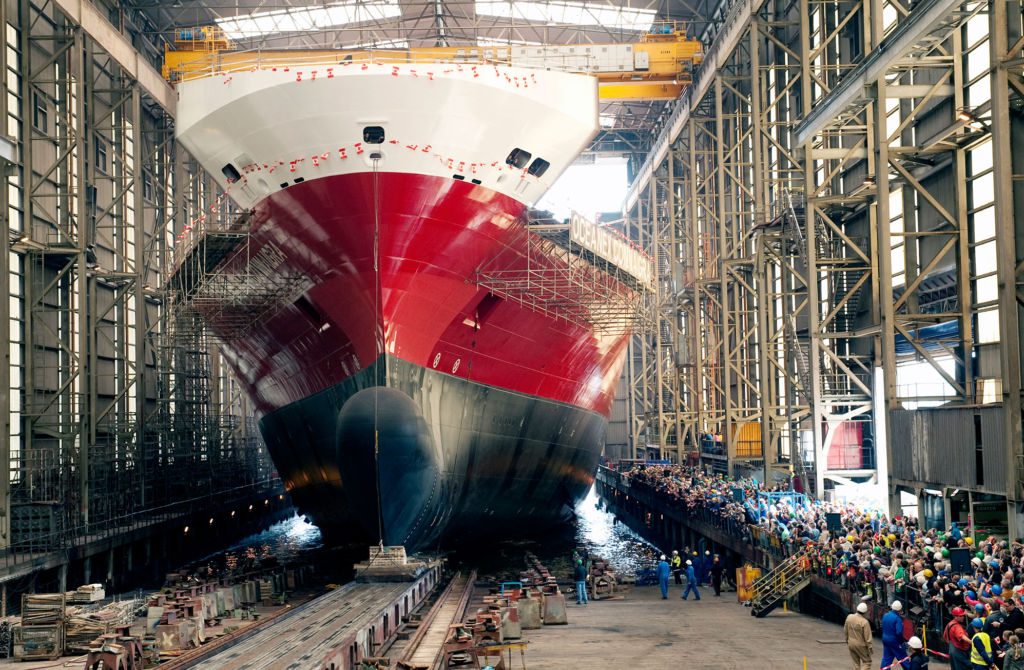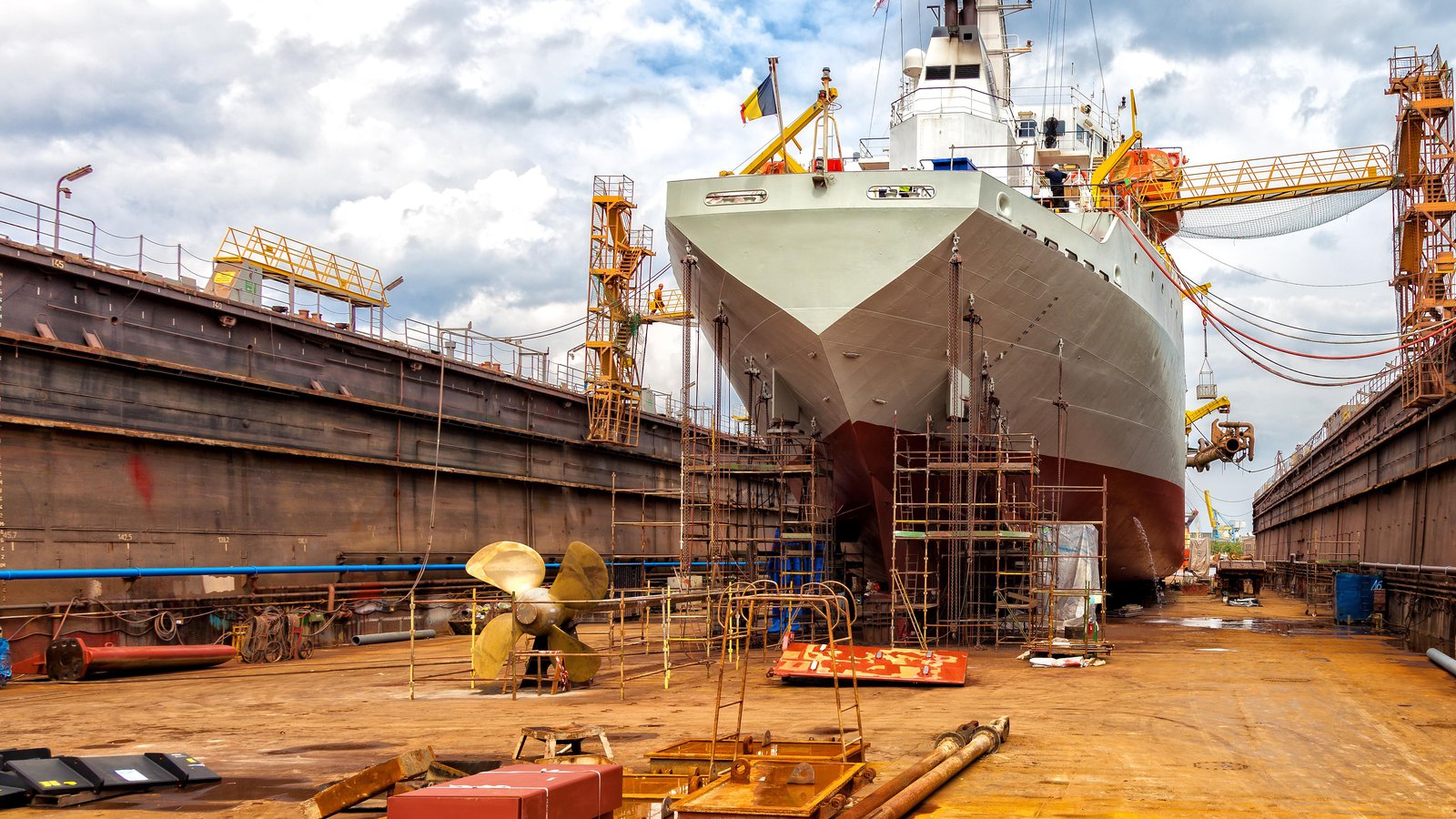How to uses of metals for building ships..?
The maritime industry has witnessed a remarkable evolution over the centuries, with shipbuilding at the forefront of technological advancements. One of the key elements driving this progress is the innovative use of metals in constructing ships. From ancient times when wooden vessels ruled the seas to the modern era dominated by sleek, metallic behemoths, the transition has been profound. In this article, we delve into the diverse uses of metals in building ships, exploring the materials, techniques, and advantages that have propelled the maritime industry to new heights.

Historical Perspective
Before the widespread use of metals in shipbuilding, vessels were primarily constructed from wood. While wooden ships demonstrated resilience and craftsmanship, they were limited in terms of size, durability, and navigating capabilities. The transition to metal marked a revolutionary shift, providing shipbuilders with materials that offered unprecedented strength and versatility.
READ MORE: WHAT IS BUTTON HEAD SCREWS , AND PROPERTIES , APPLICATIONS
Key Metals in Shipbuilding
1. Steel: The Backbone of Modern Ships
Steel, known for its strength and durability, is the backbone of modern ship construction. High tensile strength allows shipbuilders to design vessels with reduced weight without compromising structural integrity. Additionally, steel’s resistance to corrosion is a crucial factor for ships exposed to the harsh marine environment.
2. Aluminum: Lightweight Innovation
Aluminum has become increasingly prominent in the field of ship construction, attributed to its lightweight properties and remarkable resistance to corrosion. While it may not possess the same level of strength as steel, the advantageous weight of aluminum contributes to heightened fuel efficiency in ships, rendering it a preferred option for swift vessels like ferries and patrol boats.
3. Titanium: Unparalleled Corrosion Resistance
While less common than steel and aluminum, titanium offers unparalleled corrosion resistance, making it an excellent choice for certain specialized marine applications. Its use is often limited to specific components due to cost considerations.
Uses of Metals in Ship Construction

1. Hull Construction: The Foundation of Stability
The hull is the core structural component of a ship, providing buoyancy and stability. Steel is the preferred material for hull construction, ensuring the vessel can withstand the dynamic forces of the open sea. The advent of high-strength steel alloys has further improved the structural integrity of ship hulls.
2. Superstructure and Decks: Balancing Weight and Functionality
Aluminum is frequently used for the superstructure and decks of ships. Its lightweight nature reduces the overall weight of the vessel, enhancing stability and fuel efficiency. The malleability of aluminum also facilitates innovative designs, allowing shipbuilders to create aerodynamic structures that minimize wind resistance.
3. Piping Systems: Ensuring Seamless Operations
In ship construction, a complex network of piping systems is essential for various functions, including propulsion, cooling, and fuel supply. Stainless steel, with its corrosion resistance and high-temperature tolerance, is often the material of choice for these critical components, ensuring seamless and reliable operations.
4. Interior Components: Balancing Aesthetics and Functionality
Beyond the structural elements, metals play a crucial role in shaping the interior of a ship. Stainless steel and aluminum are commonly used for components such as handrails, ladders, and cabinetry, combining functionality with aesthetic appeal.
Innovative Techniques in Metal Shipbuilding

1. Computer-Aided Design (CAD): Precision in Planning
The advent of CAD technology has revolutionized ship design, enabling precise planning and optimization of metal components. Shipbuilders can simulate various conditions, ensuring that the chosen metals and designs meet the required standards for strength, stability, and safety.
2. Welding Technologies: Bonding Metals Seamlessly
Welding remains a fundamental technique in shipbuilding, allowing metals to be seamlessly joined for maximum strength. Advanced welding technologies, such as laser welding and friction stir welding, enhance the efficiency and durability of metal joints, contributing to the overall integrity of the vessel.
Advantages of Using Metals in Shipbuilding

1. Strength and Durability: Facing the Elements
The primary advantage of using metals in shipbuilding is their inherent strength and durability. Ships face extreme conditions at sea, including turbulent waters, corrosive salt, and unpredictable weather. Metals provide the resilience needed to navigate these challenges safely.
2. Weight Efficiency: Enhancing Performance
Aluminum’s rise in ship construction is attributed to its lightweight characteristics and impressive ability to resist corrosion. Despite lacking the strength of steel, the weight advantage of aluminum contributes to heightened fuel efficiency in ships, making it a preferred option for swift vessels like ferries and patrol boats.
3. Corrosion Resistance: Prolonging Lifespan
Persistent contact with seawater poses a considerable risk to ships as it triggers the initiation of corrosion. Stainless steel, aluminum, and titanium are renowned for their remarkable ability to resist corrosion, playing a vital role in prolonging the lifespan of vessels while reducing maintenance costs.
Conclusion
The uses of metals in shipbuilding have transformed the maritime industry, allowing for the construction of vessels that are stronger, more efficient, and more durable than ever before. From the foundational elements of hulls to the intricate interior components, metals play a pivotal role in shaping the modern ship. As technology continues to advance, and new alloys and construction techniques emerge, the future of metal shipbuilding promises even greater innovation and efficiency on the high seas.
READ MORE: How to start a new startup business on Deepawali 2023




